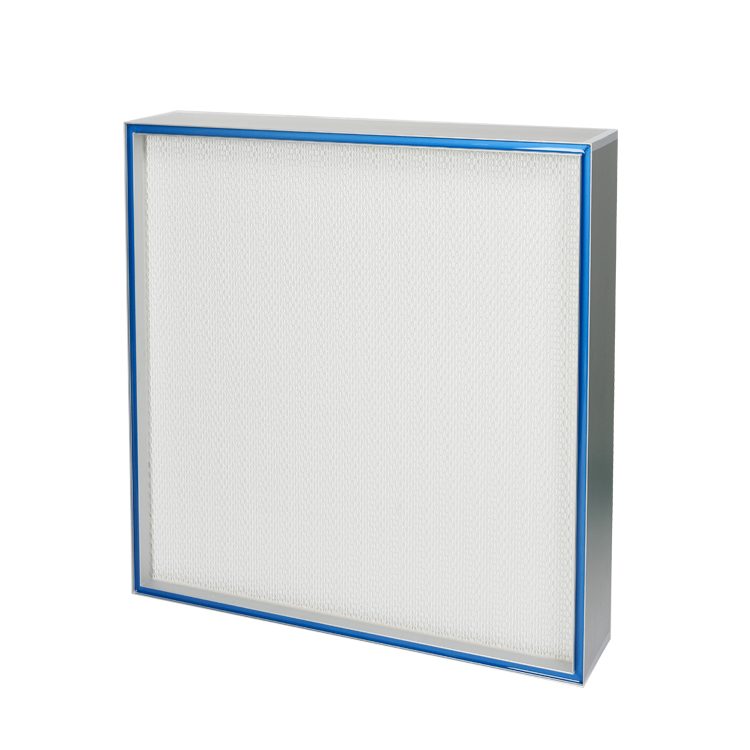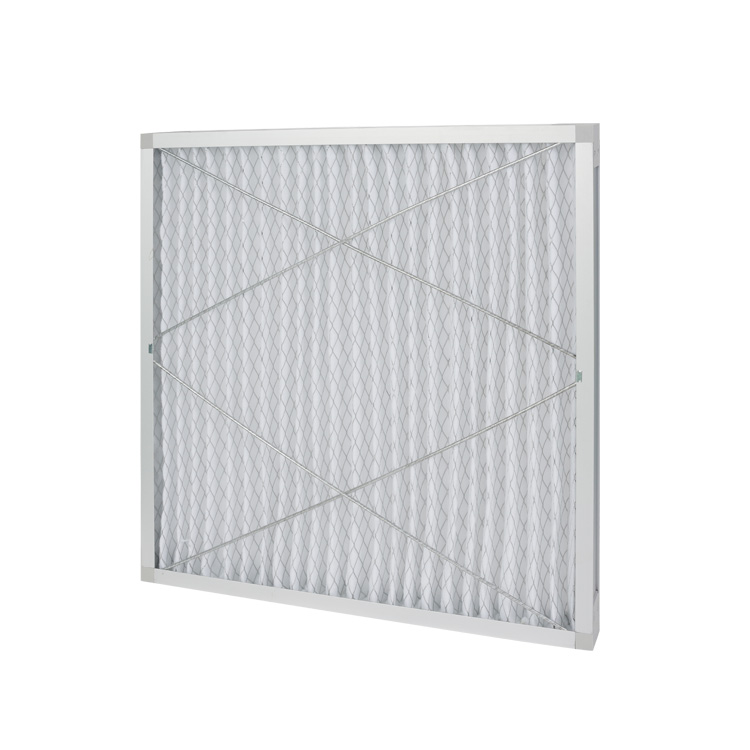| MODEL | L×W×D | (m3/h) | Initial Pressure Drop(Pa) | Final Pressure Drop(Pa) | @MPPS |
| BSL410.410-93H14 | 410×410×93 | 500 | 220 | 450 | 99.995%≤E<99.9995% |
| BSL550.550-93H14 | 550×550×93 | 1000 | |||
| BSL650.650-93H14 | 650×650×93 | 1500 | |||
| BSL750.750-93H14 | 750×750×93 | 2000 | |||
| BSL370.370-93H14D | 370×370×104 | 500 | |||
| BSL510.510-93H14D | 510×510×104 | 1000 | |||
| BSL610.610-93H14D | 610×610×104 | 1500 | |||
| BSL710.710-93H14D | 710×710×104 | 2000 |
Note: It can produce non-standard filters.
HEPA Filters: Maximize Air Quality and Energy Savings
Indoor air quality has become a growing concern in recent years as people spend more time indoors and become aware of the potential health risks associated with poor air quality. The solution to this problem is the advent of high-efficiency filters, which offer enhanced filtration capabilities that can effectively remove pollutants, allergens, and other contaminants from the air we breathe. In this article, we’ll explore the benefits and capabilities of HEPA filters, and how they can improve air quality while ensuring energy efficiency.
HEPA filters are designed to capture and remove a wide variety of tiny particles that can be harmful to human health. These particles include dust, pollen, pet dander, mold spores, bacteria, and even some viruses. Unlike conventional filters that only capture larger particles, HEPA filters are capable of capturing particles as small as 0.3 microns with over 99% efficiency. This level of filtration ensures that the air circulating in the space is virtually free of harmful pollutants, significantly improving indoor air quality.
One of the main features of HEPA filters is their ability to target and remove airborne allergens. This is very important, especially for people with allergies and respiratory conditions such as asthma. By removing allergens like pollen and dust mites from the air, HEPA filters can provide relief to those affected, reducing symptoms and improving overall comfort. Additionally, these filters reduce the likelihood of allergic reactions in healthy individuals, creating a healthier, safer environment for everyone.
HEPA filters are not only great at cleaning the air we breathe, but they are also designed to be energy efficient. Unlike some traditional filters that cause a pressure drop that increases energy consumption, HEPA filters are designed to allow maximum airflow while maintaining filtration capacity. This means air conditioning and heating systems don’t have to work as hard to circulate air, saving energy and reducing utility bills. The energy efficiency of these filters makes them an economical and environmentally friendly choice in residential and commercial settings.
Regular maintenance is essential to ensure optimal performance of your HEPA filter. Most filters need to be replaced every three to six months, depending on contamination levels and usage. Regular filter changes not only ensure optimal functioning of your air filtration system, but also prevent filter clogging that reduces the system’s efficiency and airflow. HEPA filters are usually easy to install and replace, making it a hassle-free process for the user.
In conclusion, HEPA filters are an important part of maintaining a clean and healthy indoor environment. They trap a wide variety of harmful particles, ensuring the air we breathe is free of pollutants and allergens, helping to improve respiratory health and overall well-being. Plus, its energy-efficient design promotes cost and energy savings, making it a practical and environmentally friendly choice. Considering the many benefits they offer, investing in high-efficiency filters is a smart decision for those who prioritize the quality of the air they breathe.












 Home
Home Products
Products Contact Us
Contact Us News
News